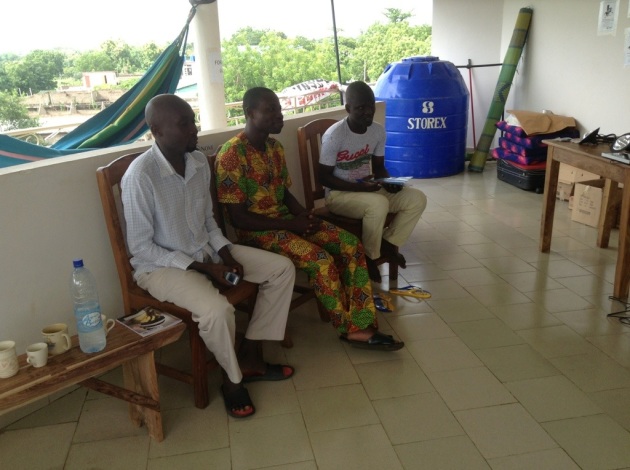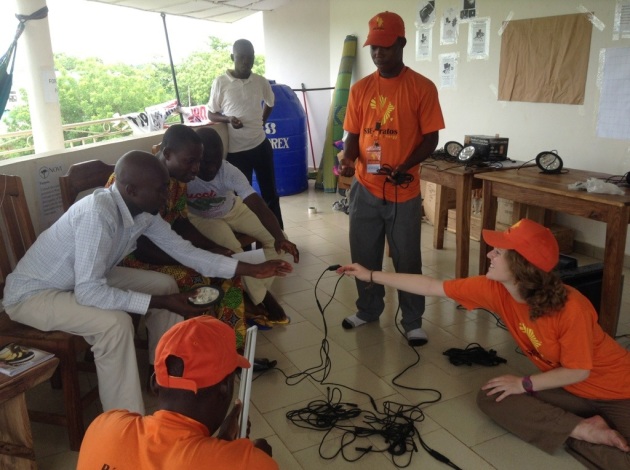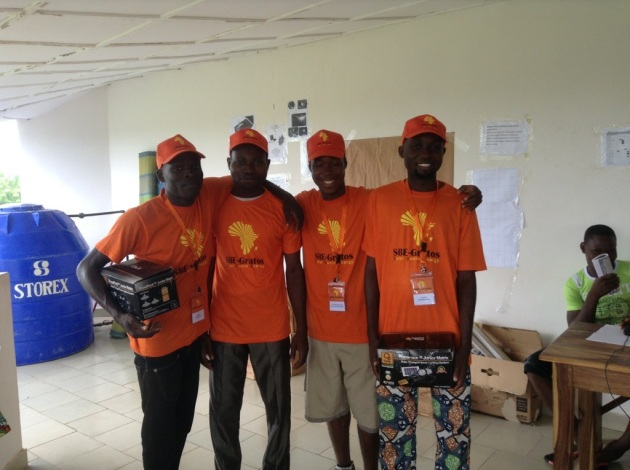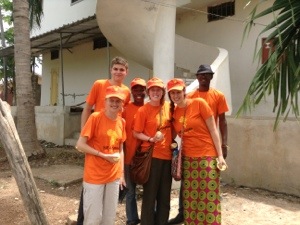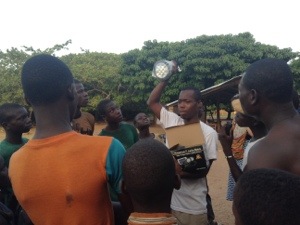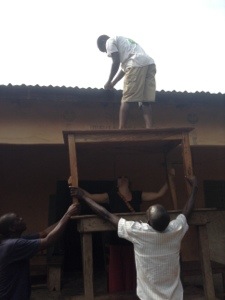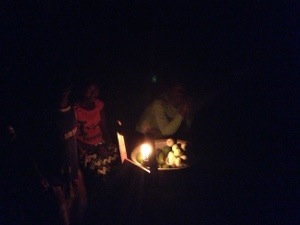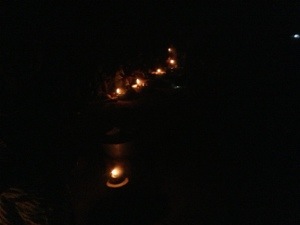Today we completed our first training of the solar agents who will be selling the solar products in their villages. We had three men from Lokossa, a town in Southern Benin joining us, and we took them through a two day training. First, we explained the goals of Novi and SBE Gratos, and described solar power and its benefits as opposed to other sources of light. We then moved onto training them as sales agents, stressing that they were becoming social change agents, not just businessmen. Although selling solar home systems is important because if the demand for them, being an active member of the community, and forming relationships with clients, both before and after the sale of the product, or even if no sale takes place, is the most important thing. Nobody should be forcing solar energy on anyone, but instead responding to the stated needs of the people you meet. The trainees were very receptive, and training on such an intimate scale was very good, since we were able to make personal connections. Bryce, a sales agent in Lahotan, joined us and shared his experiences on the field. He described working with a microfinance organization to help people afford the product, fielding questions, and interacting with people. We demonstrated some of our products, Barefoot Power’s PowaPack Junior, which has so far been our most popular product (it has two lights and can charge cell phones and radios) and Barefoot Power’s Village Kit (7 lights). Hervé and Bryce took them apart and put them back together, showing all the different components along the way. Everyone got involved, and the trainees asked lots of questions. It was a very informal session, but there was a lot of information shared and it seemed like the trainees took it all in. Hervé wrote a lot down, and they received the outline of the training at the end.
Today they practiced installing the lights themselves, which went very well. They are taking two PowaPack Junior systems back to Lokossa, and signed discharge forms and got checklists and manuals for installation and use. It was a good training, and a good template for future ones. Below are some pictures
